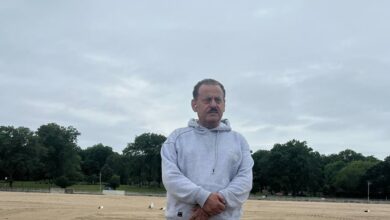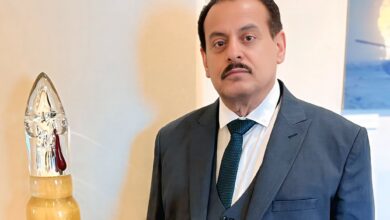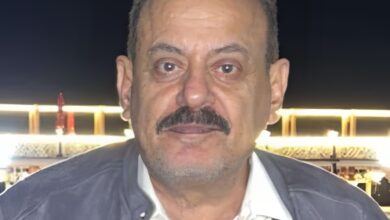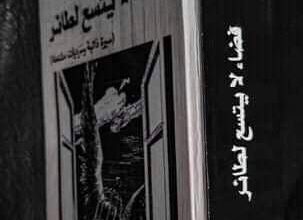Numbers
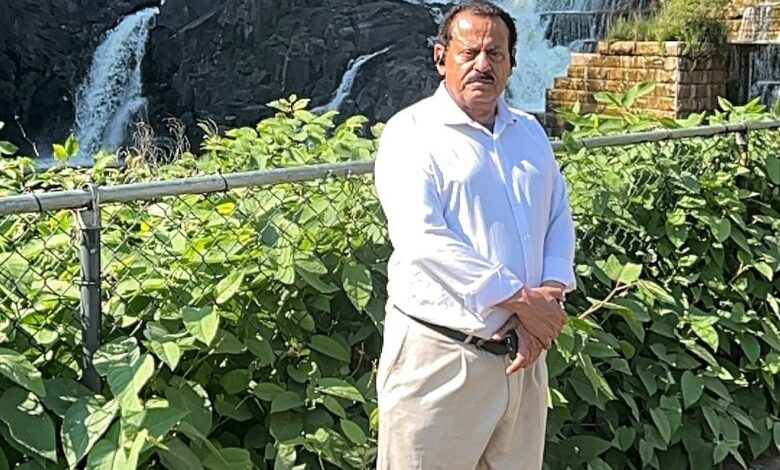
Yemeni mp
Ahmed Saif Hashed
At the end of 1981, I was accepted into the tenth batch of the military academy, receiving the number (573/10). Such a number indicated that a member of the tenth batch belonged to the national liberation movement, while students from Democratic Yemen were assigned military numbers that fell under the structure of the armed forces of Democratic Yemen, distinct from our own, many of which contributed to the total of seventy-one thousand and fractions.
The assistant, known as “Al-Maqat,” amazed us with his ability to memorize the numbers of the students in our batch. He was particularly adept at recalling the numbers of those who misbehaved; if a student committed an infraction or even delayed for a few seconds during formation and incurred a penalty, that number was etched into Al-Maqat’s memory. Honestly, I do not know what his name or nickname truly signifies! Yet perhaps he lived up to it in some way. The students in our batch often knew each other by their numbers more than by their names. The difference in numbers did not, in any way, affect rights and duties or introduce any form of discrimination among the students in the academy.
I regarded the number (573) as a good omen, especially since it became associated with my graduating at the top of my class. To me, it is unforgettable, despite my poor memory for numbers and my lack of interest in them. I have often forgotten my own birth date, failing to recall it correctly until just a few years ago when I finally documented it properly. This confusion led to my inability to recover numerous accounts on social media, particularly Facebook, which were closed due to false reports from electronic armies affiliated with factions of war and conflict, resulting in the loss of tens of thousands of followers each time.
I believed that the number (573) was a symbol of good fortune. I even found myself using it to create my passwords, including for my phone. I also incorporated it into my lucky numbers, hoping that luck would favor me. More than that, I discovered that I had integrated it into my postal savings signature before unification, and even today, it finds its way into a corner of one of my bank signatures regarding deposits and withdrawals.
I have engaged with this number as if it were a piece of “The Da Vinci Code,” as explored by Dan Brown, or a personal lucky number bestowed upon me by fate or destiny from behind the veils. Yet, in reality, I found it offered no financial advantage; instead, I consistently struggled to accumulate wealth, and I became deeply in debt.
* * *
During the peak popularity of the newspaper “Al-Mustaqila,” my bank account was active with withdrawals and deposits almost daily, but it never reached a level that could qualify me as a man of finance and business. My balance never swelled even to the minimum required to secure my future against poverty. I coexisted with poverty far more than I did with the acceptable state of a dignified living. Today, for several years, my financial situation has become more challenging and complex, with the oppressive forces of exploitation, steeped in blood, becoming increasingly terrifying and grotesque.
* * *
In the era of the “Partnership Government,” where Islah Party held the most influence, rumors and falsehoods about my possessions and bank accounts circulated widely in April 2012. When I was invited to the forum of the late Omar Al-Jawi on April 18 of that year, attended by dozens of intellectuals, journalists, and rights activists, I shocked everyone by revealing my financial status, supported by detailed bank statements. Even more boldly, I published my financial disclosures in the print edition of “Yemenat” a week later, on the front page, with a bold headline challenging the parties and officials to follow my lead. Yet, none dared to act as I had, especially Islah Party, which had propagated those baseless allegations in some of its publications, nor one dubious rights activist who played both sides, later becoming a “rights minister” in Hadi’s government and then an ambassador in a country overlooking the Sea of Darkness, where Yemeni students complained about him and suffered from his actions.
During the era of the “Houthis,” as my family, my colleagues, and I faced hunger and austerity, cursing the occupation, aggression, and war, their intelligence and security agencies secretly sought my accounts and balances in the banks. I felt their malice and pettiness, despite my transparency, honesty, and clean hands.
They searched and found only what contradicted their malign suspicions—a great disappointment for them, with only regret to hurl back at their faces. They reaped nothing but a curse that will pursue them until their downfall. Their reputation, once soaring high, has already fallen, and their authority will soon follow, unable to endure beyond the current war, exacerbated by the wretchedness and ugliness of its factions and supporters.
When I met Mahdi Al-Mashat after he assumed the presidency of the Political Council, along with Mohammed Ali Al-Houthi, the head of the Revolutionary Committee, I reproached them bitterly for their security apparatus’s excessive suspicion. They did not respond, and I was keen to convey that I did not speak lightly or throw accusations at random, but rather addressed an undeniable fact.
Despite my past disappointments concerning the number (573) and the way it clung to my identity, particularly in matters of financial accumulation, I take pride in it. For as much as it was a symbol of academic excellence in the academy, it also remains a testament to integrity—a quality I cherish most in the face of the robbers, thieves, and corrupt individuals, both past and present, who have exercised their power with brazen tyranny.
* * *
I do not believe in horoscopes, yet I find myself following them and observing those who adhere to such beliefs. I take an interest in various predictions and forecasts, whether astrological or otherwise. I track some of their proponents, driven by curiosity, anxiety, a search for wonder, or even a passion for knowledge, as if they might hold remnants of ancient wisdom. Nonetheless, I discern within them both truths and falsehoods, along with pure nonsense.
Sometimes I marvel when a prediction strikes at its core or aligns closely with what is said. Many times, however, I remain skeptical, convinced that these insights are merely guesses, wishes, or probabilities—perhaps coincidences that find a fragment of truth in their claims.
Some predictions may arise from diligent analysis, while others exist within the realm of possibility. Some are mere interpretations of what has been said, and occasionally I suspect that certain predictions are intelligence leaks serving specific agendas or promotional efforts elevating a cause or discrediting another in exchange for favors or bribes.
I do not concern myself with the mysteries of numbers, even if I once believed that the universe had its own messages. I might find in numbers something perplexing and enigmatic, leaving questions lingering in my memory, perhaps without answers—only intertwined mysteries or persistent dilemmas that may remain unresolved for an extended time. I may even have thought at one point that a particular number etched in my memory could evoke optimism and attract luck.
* * *
In October 2013, I traveled to Morocco to attend a workshop with Naif Hassan, the publisher and editor of “Al-Sharae” newspaper, invited by Transparency International. The workshop gathered advocates for transparency and integrity, alongside activists fighting corruption from Egypt, Yemen, Palestine, and Morocco. After the workshop, Naif and I wished to visit the cities of Fes and Tangier.
We purchased two tickets for a train journey from Rabat to Fes. As we queued to collect the tickets, we reached the counter together. The numbers on our train tickets were 35 and 36. The same situation repeated for our tickets from Fes to Tangier. This repetition caught our attention; perhaps the hypothesis of coincidence lingered, though it did not dispel my sense of mystery and strangeness.
As soon as we disembarked from the Fes-Tangier train at the station, I said to Naif, “Now I will be the one to book the return tickets from Tangier to Rabat. I want to confirm that this is merely a coincidence and nothing more. It’s impossible for the scene to repeat for a third time.” He was with me when I purchased the tickets.
I obtained the two tickets, and a wave of astonishment struck me like a thunderclap. The numbers 35 and 36 had repeated for the third time, unlike anyone else’s, with perhaps an additional number from the left side. I found myself drowning in disbelief, insisting that coincidence could only occur twice, not three times. I could not find a logical explanation for what had transpired. My bewilderment regarding this illogical repetition remains to this day, leaving me to ponder whether there are messages or signs from the universe, if indeed the universe conveys such things.
* * *


